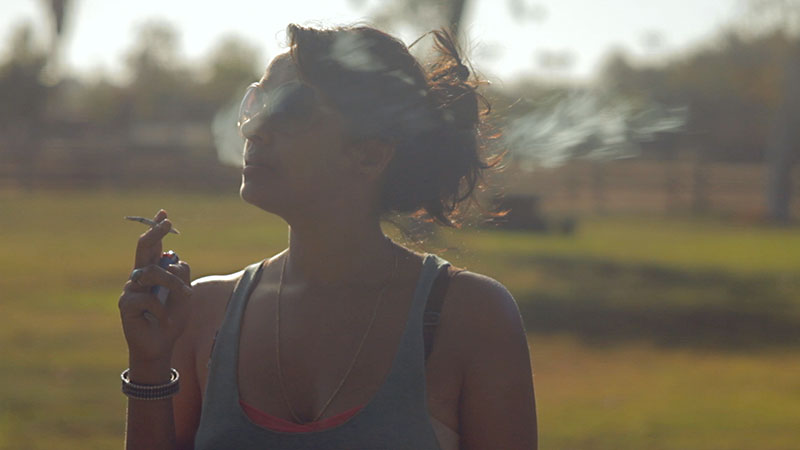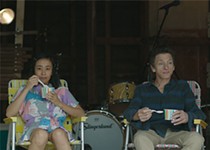Highlights From the Austin Asian American Film Festival
Dark and stormy, with a side of stoner fun
By Michael Agresta, Fri., Nov. 4, 2016
Anand Modi, director of programming for the Austin Asian American Film Festival, has a problem of abundance. How do you pick just 12 new feature films to represent a geographical region that contains more than half the world's people, not to mention a growing and diverse Asian-American population now topping 20 million?
Modi's answer is to mix a cineaste's discernment with a mandate to forge connections between diverse global and local communities. "Broadly, I always favor movies that advance the medium, that use tools of visual storytelling in a different way," Modi explains. "In the context of AAAFF, we look for films that draw a line from Asian cultures to American cultures."
Modi notes several new wrinkles in this year's AAAFF. First of all, the festival will take place Nov. 3-6 at the Blanton Auditorium – a temporary change from AFS Cinema. "We definitely want to take advantage of the fact that we're on UT Campus to reach more students," Modi says.
Curious attendees, be they undergraduate or over-the-hill, will discover a slate of films showcasing trends in both Asian and Asian-American cinema. Modi reports that Taiwanese New Wave director Hou Hsiao-Hsien and Thai arthouse hero Apichatpong Weerasethakul were the primary stylistic influences on this year's crop of festival candidates from the Asian continent. On the domestic side, Modi says, AAAFF has lately become less focused on films that hinge primarily on questions of heritage. "We're starting to look at 'Asian-American film' as work not exclusively about Asian-American experience, but as an outlet without regard to content," he says.
Along those lines, Modi recommends Grass, a female-led American comedy about a Ph.D. student who receives a backpack full of weed from her dealer boyfriend, and, instead of delivering it, spends all afternoon in the park smoking with her friend. "It's a stoner movie in the traditional sense, in that it's about two people getting high, in a Cheech and Chong, Harold and Kumar kind of way," Modi says. "But it also draws on Waiting for Godot. It's stylistically and structurally very interesting, and made for not a lot of money."
For those looking for more serious drama, AAAFF's closing film, After the Storm, is the latest from Hirokazu Koreeda, perhaps Japan's most acclaimed living filmmaker. Those with an intermediate knowledge of Asian cinema may detect shades of the great Yasujiro Ozu, director of Tokyo Story, in Koreeda's tale of a family affected by a typhoon. "He's a humanist filmmaker in the truest sense of the word," Modi says of Koreeda. "It's a movie that has a lot of innate appeal just as a straight family drama. If you like Ozu, you'll like this movie."
Modi also recommends several documentaries from the AAAFF slate, in particular Unbroken Glass by American filmmaker Dinesh Das Sabu. Shot in first-person style, the film chronicles the director's loss of both his parents at a young age and his subsequent journey of self-discovery. "It's about an Indian-American man finding his ethnic identity in the context of not having that passed down to him by his parents," Modi says. "It's also a very frank discussion about suicide and mental illness among Indian-Americans, for whom that subject matter is kind of taboo."
Beyond those three picks, Modi hopes that festivalgoers will check out films up and down the AAAFF slate, which, taken as a whole, seeks thematic harmony in diversity. "I hope audiences are able to look at those movies and interact with them in ways that reflects the fact that contemporary life is the same across continents," Modi says. "We're all facing similar challenges."
The Austin Asian American Film Festival runs Thu., Nov. 3 through Sun., Nov. 6 at the Blanton Auditorium. Festival badges are $65 and single tickets are $10. For the full lineup, visit www.aaafilmfest.com.











